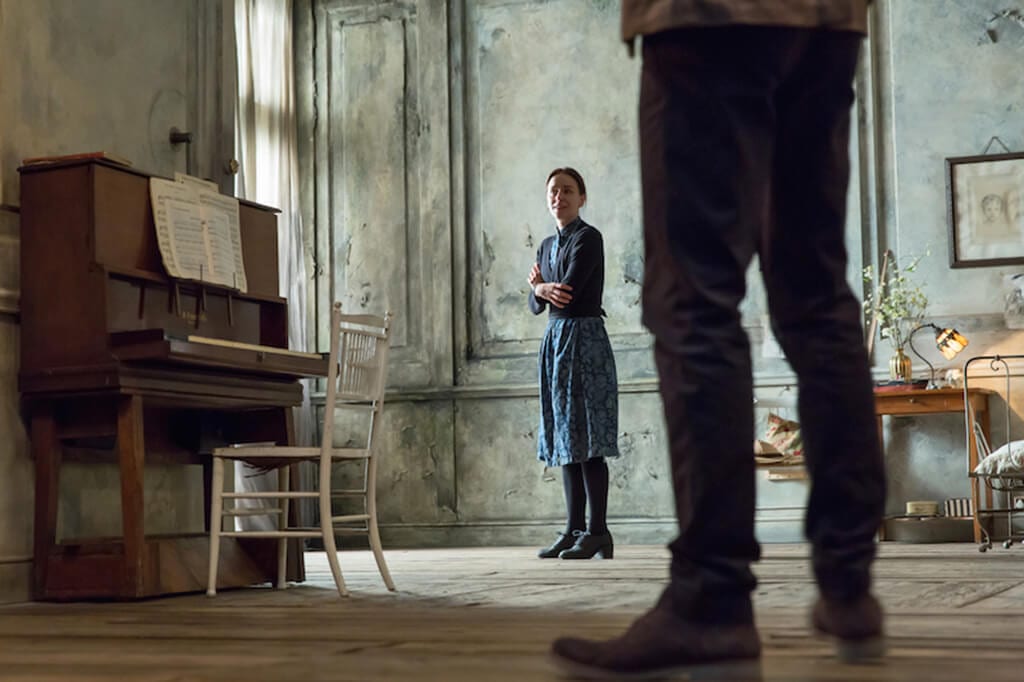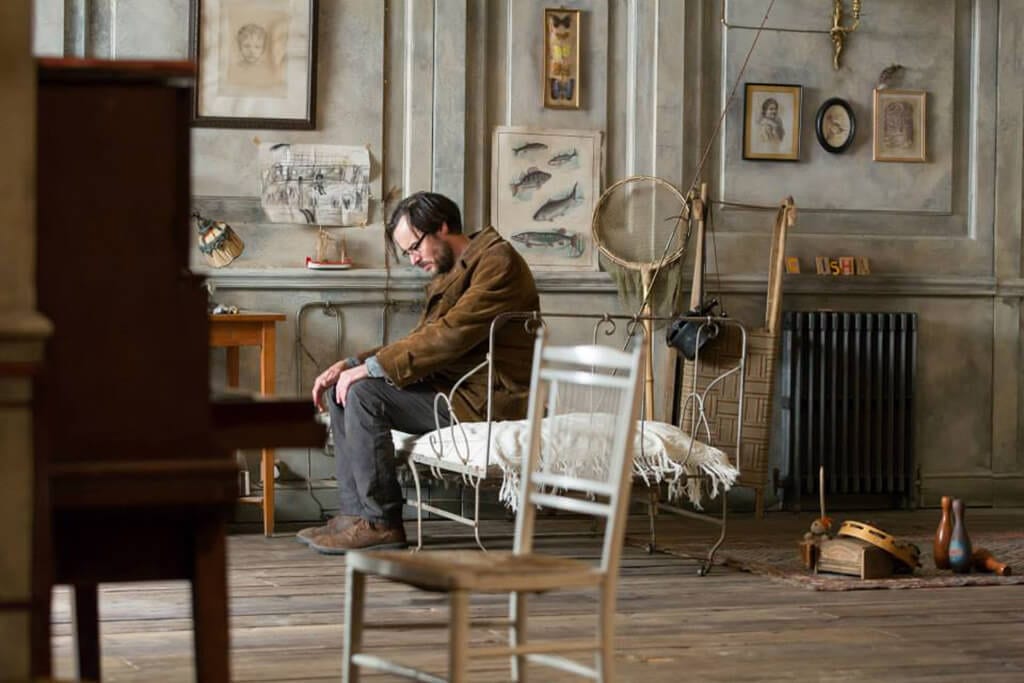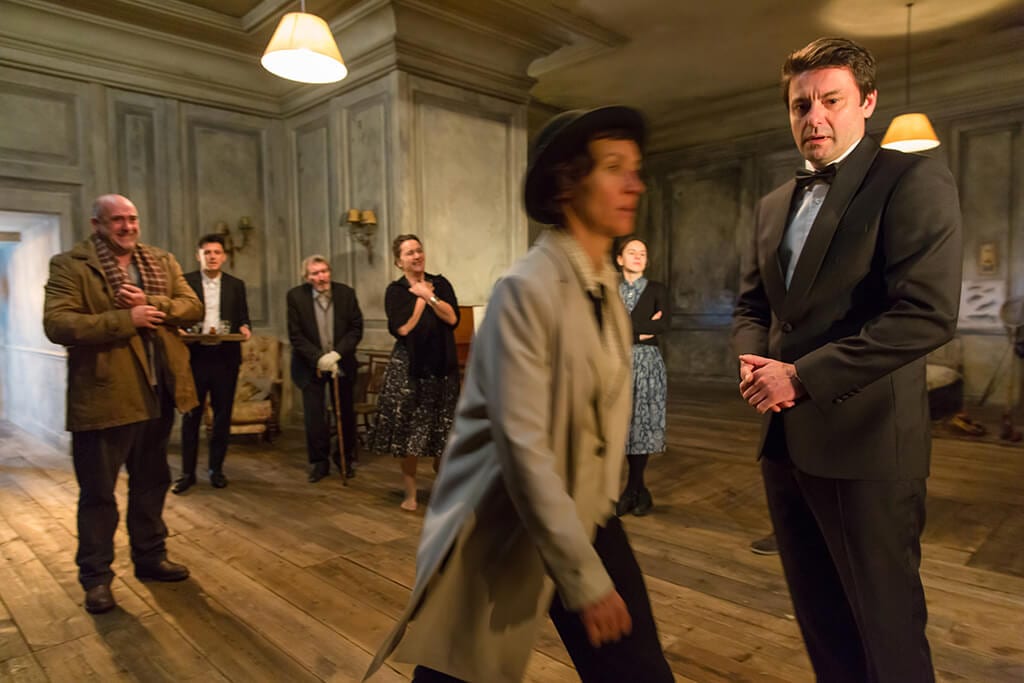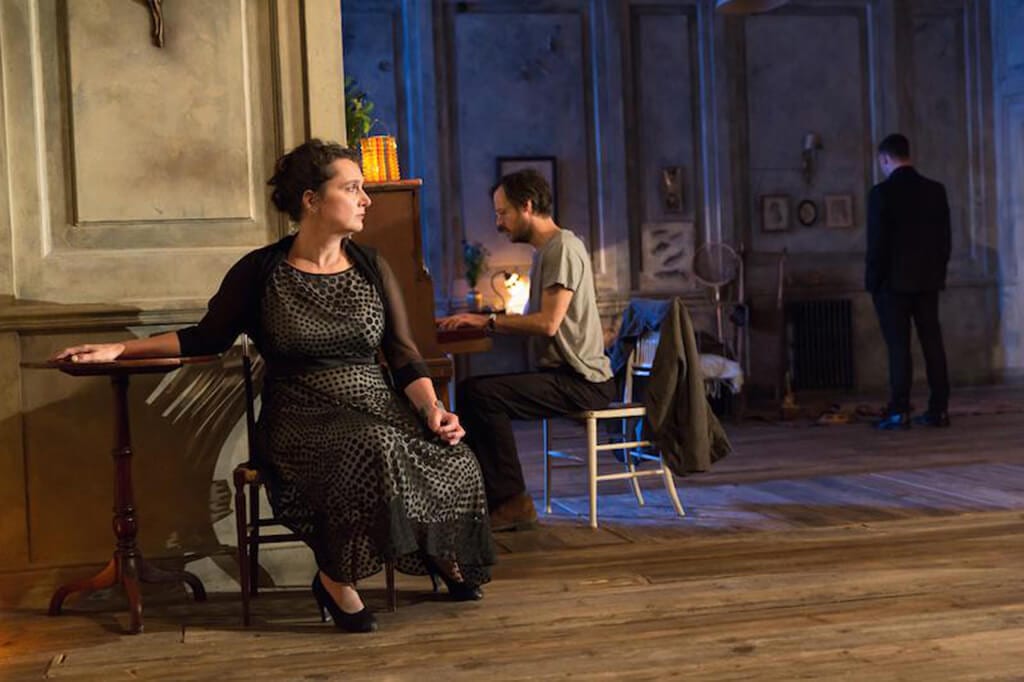Katie Mitchell’s production of The Cherry Orchard embraces melancholy, alienation and erratic-neurotic characters, who behave and talk as if they had lost their way diverting attention from the pivotal notion of the play – the story of an end of an era and beginning of a new one.
The set reflects this mood: in a large room, grey tall walls blotted by patches of decay, damp, and a large black stain at the far corner touching the ceiling, like a poisonous spider, with a door on the one side and a corridor on the other, brood over the play’s four Acts.
The play’s basic story is deceptively simple. The aristocratic Lyubov Ranevskaya, deeply in debt, returns from Paris, leaving an abusive lover, to face her creditors. She and her brother are reluctant to sell the ancestral estate yet fail to consider an alternative solution to stave off the creditors. Eventually Alexander Lopakhin, who is the son of a former serf, buys the estate with its cherry orchard, to be cut down to allow the land to be developed.
Mitchell denudes the play of any romantic frills or sentimentalities. Ranevskaya and her daughter Anaya (Catrin Stewart) enter the mottled grey room with nostalgic cries, which fall flat, as there is nothing on stage to evoke the estate’s glorious past, particularly as we are informed that the room is ‘just as if I had never been away’. This may be a point Mitchell tries to highlight in her endeavour to balance naturalism with symbolism, namely, that there is nothing glorious about the past: it was and is all drab.
Kate Duchêne’s Lyubov Ranevskaya captures some of the character’s mixture of feckless frivolity and sudden moments of piercing guilt and grief as she thinks of her drowned son and her parasitic lover. Yet, the frivolity is too exaggerated, projecting a crude middle-aged woman, with little grace and gestures, a caricature at best of Chekov’s character.
Angus Wright as Leonid Gaev, Ranevskaya’s brother, lightens the production with Chekhovian humour manifested in the character’s desperate kindness and helplessness.
There is nothing of a peasant in Dominic Rowan’s Lopakhin. Dressed in a suit, softly spoken, his presence inspires more respect than Ranevskaya’s. There is something vulgar in her demeanour and it is hard to see how the 36 years old Trofimov could fall in love with her.
Hugh Skinner’s Yepikhodov, the clerk, delicately and effortlessly conveys the comic trait of his character. Sarah Malin’s Charlotte is sharp and funny. She successfully exposes her past through her present, though I am not sure of the need for her to walk naked with a gun on her shoulder, across the stage. Tom Mothersdale’s Yasha is a brilliant brute and opportunist. The performances that fire the emotions are those by Carin Stewart, Natalie Klamar’s Varya, and Gawn Grainger’s Firs.
We are informed that this production is based on Simon Stephens’s English language version. Stephen does not claim to read Russian, but used existing translations to modify and update the language. It works. The dialogues flow seamlessly and there was no sense that the play was marooned in the long gone past.
Stanislavsky, who was the first to direct the play in January 1904, said ‘Chekhov is inexhaustible’. This production exposes the complexities a director confronts when attempting to direct it, though one leaves the show feeling that the play’s soul has been rather impounded.




